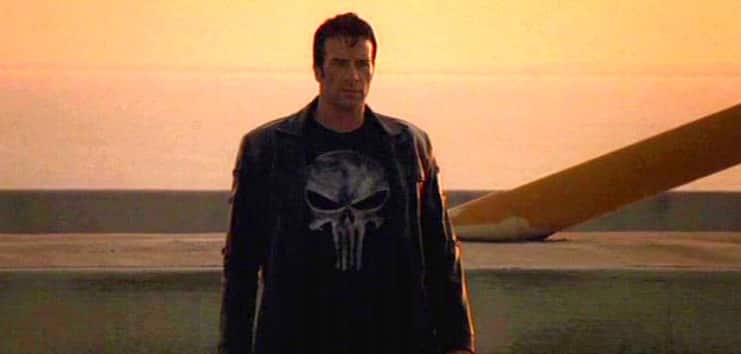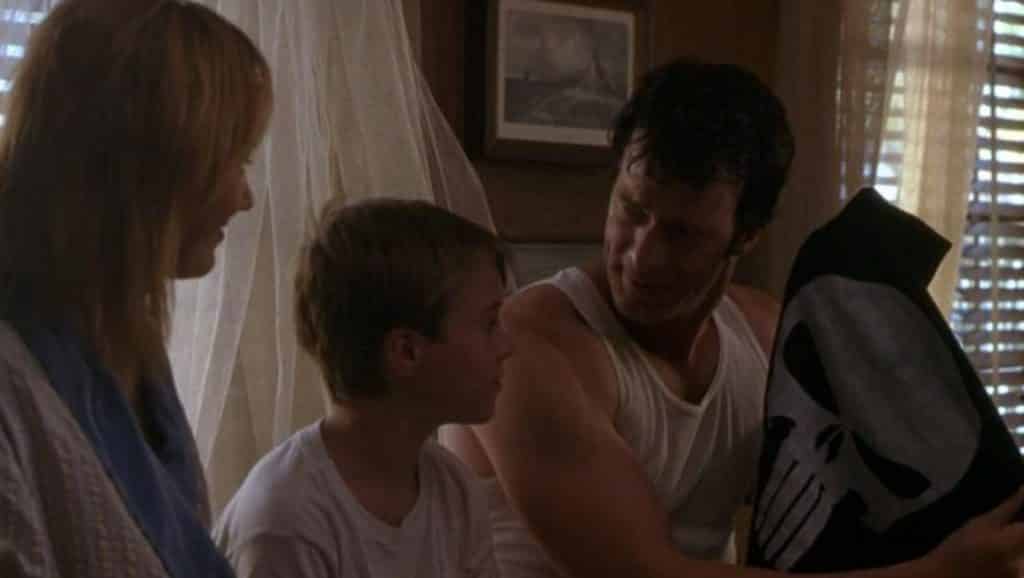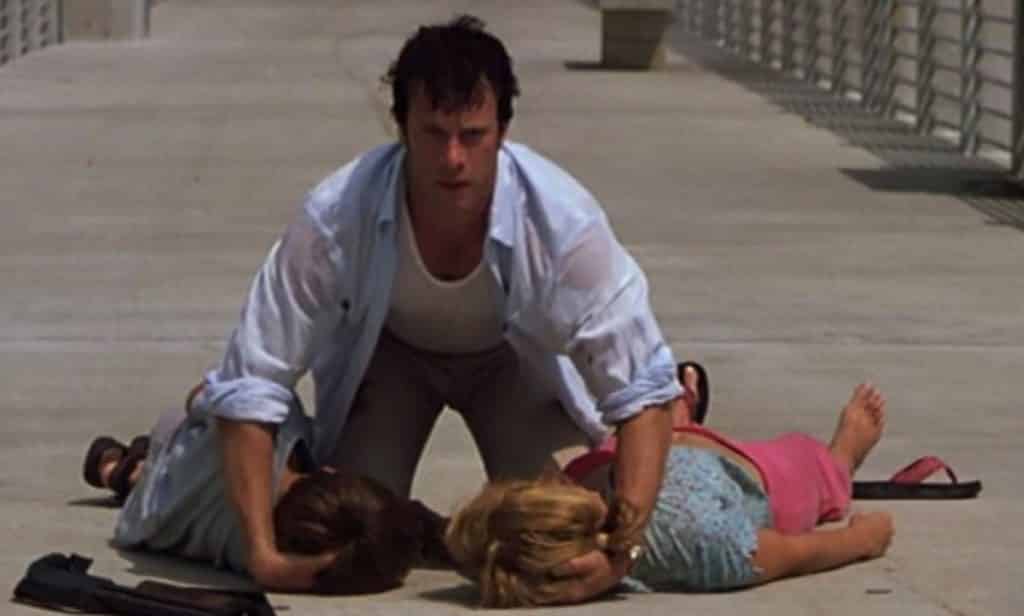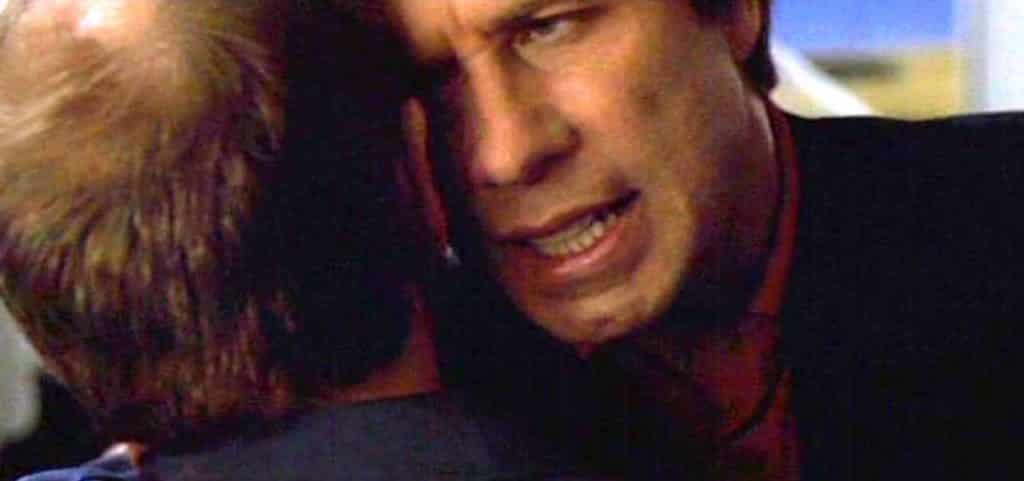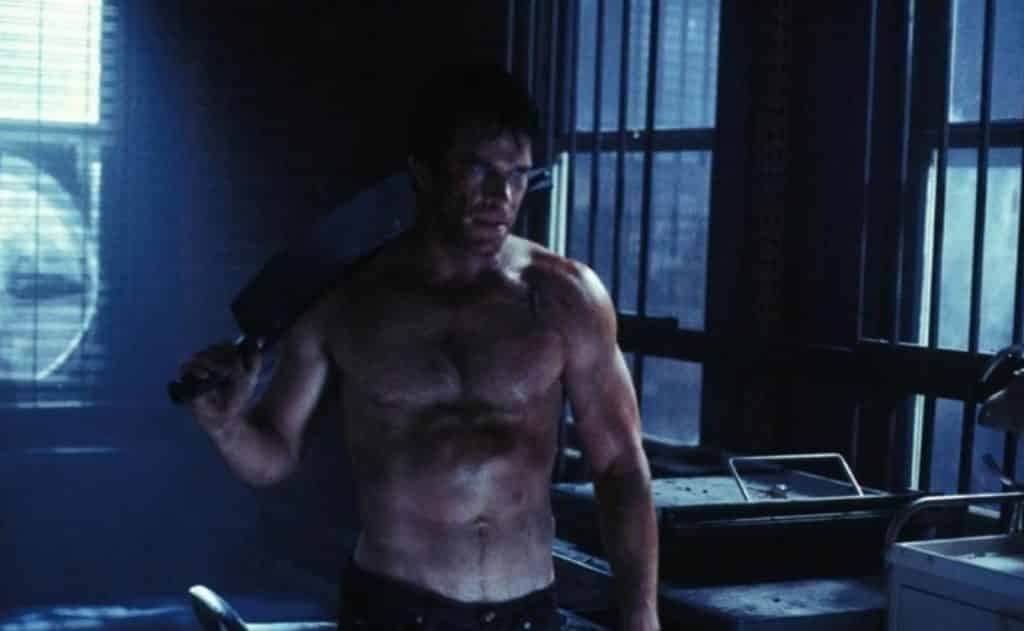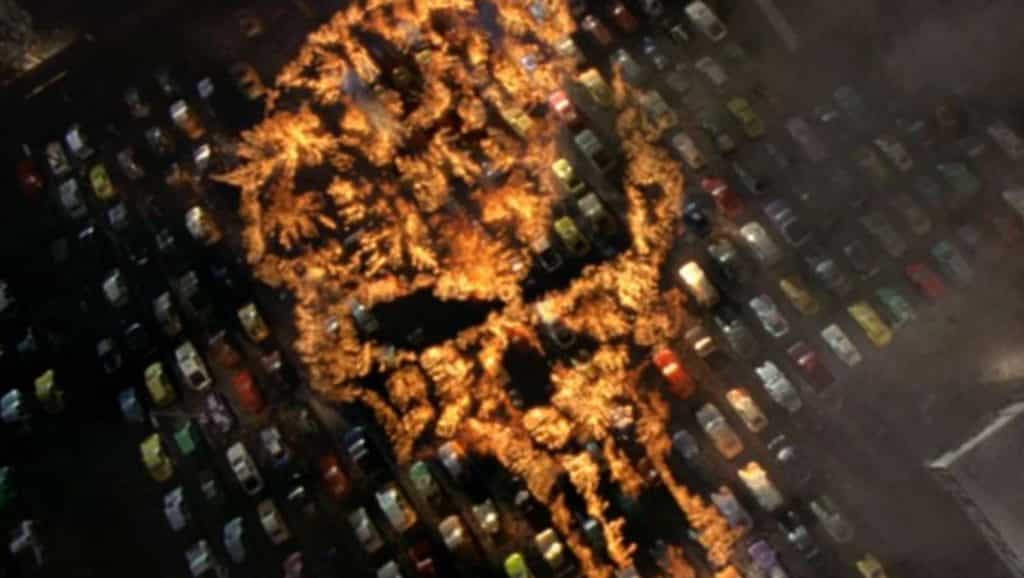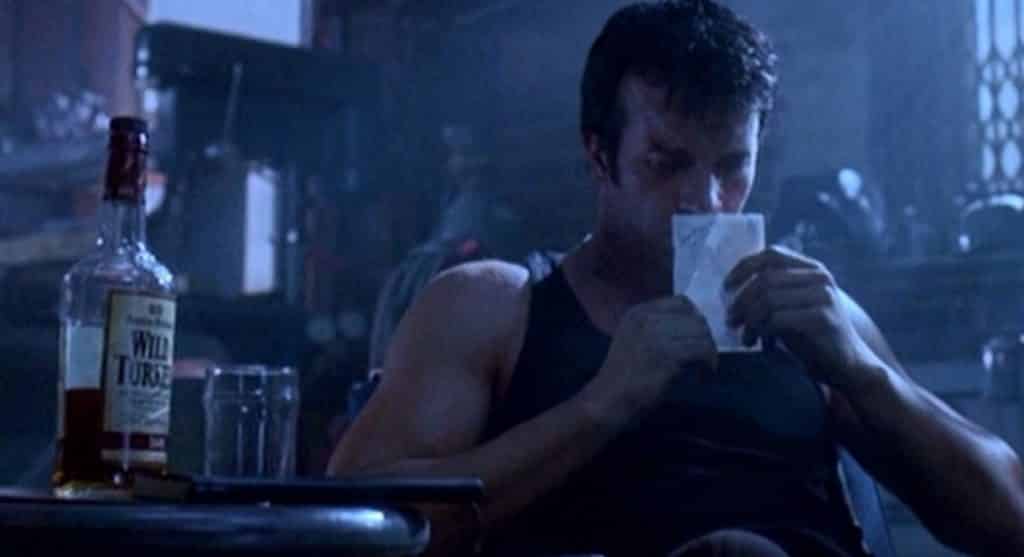The Punisher starring Thomas Jane is by no means a perfect film. It’s got a lot of sidetracking and mixed tones, some mucky scripting included, but it was a film that tried to be something more than just the typical comic book film.
I have a real soft spot for the kind of soul they put into Frank Castle’s portrayal, which I felt made his film incarnation something more progressive than most of the comics could have made at the time, and it was really one of the first introductions I ever got to the character properly. Thomas Jane truly put a note for me of being the ideal Frank Castle and, eventually, the Punisher.
But I know there’s more to discuss on that matter that has brought some attention.
During my article back then ranking the different live-action incarnations, I spoke briefly on the topic of the 2004 film having slightly lied on what the title was to feature, where we didn’t have a film on Punisher, but rather a man who was trying to become him.
After some questioning of my reasoning behind it and some other talk with the members of ScreenGeek.net, I decided to go into further detail as to have my thesis understood more clearly.
For the sake of the article, I will divide the identities of “Frank Castle” being the film representation and “Punisher” as the man he is to become, showing some differences through their actions and thoughts in contrast and even similarity.
The start of the film already offers some changes from the typical Punisher story: Florida being the new location as opposed to the gritty New York air, Frank’s job working as undercover FBI, and even the events leading to the murder of his family through a drug bust.
To me, these differences don’t exactly affect the film as much as I’m concerned for where I am to go for the article. It still holds on to what Frank Castle loses: something he built. It’s one of the reason I feel he is a more tragic figure than Batman; because while Batman lost his parents at a young age and had to live a depressing life on his own, Punisher was someone who lost his own wife and child, and witnessing his extended family and parents in the film version go through that same fate, that was a living he settled with.
It leaves a much more empty hole in him because what he worked and stood for was completely gone, with his own personal relationships faded to become this visage of a functioning human being.
Being also involved in the survival of the firefight gives more ambition to his start as the vigilante, and the way his face molded to pure vengeance was cold, a brewing anger in what he was to do.
He saw the shirt his son gave him not only as a symbol of his memory of him, but to make the reality of the “repealing of evil spirits” to be like a personal promise to himself and his fallen family, in memory of his son’s words. This was vengeance.
Along with the entire massacre of the family, the additional deleted scenes of Jimmy Weeks betraying his friend and selling out his information to the events leading to it had some serious high stakes to the situation.
This makes the public ignorance of not arresting any of the men responsible all the more infuriating for Castle and us the viewers, which really offers a greater sense of high stakes, and it works to the film and the pain Castle goes through, especially with his powerful quote on what he felt over “being upset”.
It was a real kick in the face for what he saw in what was supposed to be supported for, isolating him to a former shadow of himself. He is ready to take action into his own hands.
By now, you think with the scenes of him prepping up with the collection of guns and looking at pictures of his lost life was enough for Frank to be immediately the Punisher? To that I answer no.
We see his next few scenes in the film being more undercover, using Mickey Duka to find personal information on the Saints and taking care of minimal body counts to make the agonizing statement he was alive and ready to make Howard Saint lose everything before he finishes him.
Money lost, severing ties with the Toro brothers, and then setting up the idea that Howard’s wife Livia and his second in command Quentin Glass are setting an affair.
While some of it does show Castle’s ideal psychological tactics and his advantages being beyond bullets and knives, some of it did feel placed a bit oddly if we were to refer to him as The Punisher. Punisher would make anyone involved be dead rather than holding them at gun point immediately, including the likes of Mickey, the accountants and the such.
He would hate the sinner as much as the sin they cost and would see little redemption in allowing them to live freely. Frank, however, is making this a personal gain for him to go after only Howard Saint and Howard Saint alone.
He is still much more sensitive to the idea of killing someone unless his life was threatened first and would rather have fate do that responsibility. This former shell of a man still has standards, it feels.
After some more grittier fates of other characters and his need to extract coercion and murder becomes more evolved, he begins to see himself engrossed to the ideal. And once he makes note of his infamous “Declaration of Intent”, he creates as law of himself to becoming this entity he must grasp that is to be The Punisher. Peace is gained through war.
Frank Castle is dead. There is no vengeance, but punishment. By now, you’d think he finished his character arc to become the Punisher? Still not there.
The final battle is one of the most Punisher-like scenes in the entirety of the film. Frank shows us the real chops of his murder spree. Real execution, badass firefight, bullets flying, and the versatility of his actions. Even the cold read against Saint’s other son with the torturous mine trick was pretty sick to think about.
Once he leaves, he hangs his skull vest, almost as if abandoning his potential mask of cold death, to take on Howard Saint as what’s left of this man that is Frank Castle.
Avenging the very family he lost, he shows himself as the reflection of Saint that he is capable of coming back with a personal vendetta. Mentally and physically destroying him, Castle also makes one of the most over-the-top yet badass symbol of his victory. Nothing but the fires of death surrounding him and his way, he concludes his journey of his world against the Saints, spaghetti western style.
That scene would make you think by now, he’s the Punisher fully embraced, no? Well, the scene that follows up to it had me question and still say “no”.
“But he just killed so many criminals and did it without a flinch of regret. How could you still think isn’t Punisher enough?”
Because the next scene was one of the most anti-Punisher things Castle could have possibly done had he gone through with. It kind of shows he lied to himself about the progression he made for himself that moment from the Declaration of Intent he intended to follow, because unlike the rules, what he did was not punishment, but vengeance.
That next scene following is Frank Castle in his private quarters, drink in hand, gun on the other. He believes the war is over and he can go join his family in a more depressing route. He arms the gun with a devastatingly solemn look in his eyes, a man who just wants the pain to end. This was a personal score that was already settled and he saw nothing more fitting for his sins.
When imagining his wife one last time, he takes the gun away. He finds something new, something more definitive for himself. His actions were something he did because he was able to. He leaves the neighborhood and with the “obituaries” comment he makes to Joan shows he has much more work to do.
We see him on the iconic bridge, silent. Then the wind passes like the ghost he is, travelling wherever. And thus the iconic monologue where he finally announces his place as the Punisher, the bearer of punishing not just the ones that have done him wrong, but the wrongs of others.
No one else could stand up for themselves like he has.
Fun Fact: this track from the official score was meant to be played during his moment on the bridge from 1:35. However, Jane and director Jonathan Hensleigh opted out for the silent ambiance as they didn’t refer to Frank Castle as a hero, and nor should he get a glorified ending.

I don’t know about the rest of you, but Punisher’s most defining features isn’t the kind of gun he carries or what he uses to dismember a Mafioso, but it’s the ambition behind it, that willingness to go for the whole cesspool of crime, being their representation of judge, jury and executioner.
What Frank was doing during the entirety of the film was a personal goal of what happened to his own family, and even though Punisher is one who executes those he knows, or rather feels, are embodied with crime and evil, he did it for more than just himself.
Pretty much everyone that Frank took the lives of was involved or hired by the Saints and allowed no opportunity to really go after anyone else aside. One could argue Joan’s boyfriend was one of the ones he did “punish”, but it was only a form of intimidation than actual killing that pushed the line between the two identities.
I like to believe the Declaration of Intent was something he made as a motivational poster for himself to become, to mold his mindset to what he knows he must eventually embrace what people see a monster of murder. So it wasn’t the eyes on the shirt in the sand, or the gearing, or the showdown with Howard Saint; those were the stepping stones.
It was the strong, subtle moment he took the gun away from the one person he felt should have been punished but realized is needed most of all: himself. The Punisher.
In closing – we didn’t see what Punisher truly was until the very end of the film, with the last line being his new code to accept the identity he has finally found, which not only represented a perfect CinemaSins “roll credits” opportunity, but a very symbolic acceptance of taking the role and responsibility he has brought himself to become.

Does that make it a bad film for that? Of course not. Origin stories have been used for just about every superhero film out there you could name, but none took the severe amount of time to build its character from a human experience like Punisher did.
Fortunately, this wouldn’t be the last time Jane portrayed Punisher, with more adding into his versatility in the Dirty Laundry short film, as well as seeing the full extent of his merciless cold anti-hero, even the closest comic incarnation yet, in 2005 The Punisher game through his voice work.
Now, debating whether the film was done great or not is another question in its entirety, but I can easily say it stayed away from the typical formula of many superhero films and took the time it needed to for us to actually feel for his character before introducing him as an actual vigilante first. Through that, it’s definitely one of the reasons many people seem to actually enjoy Thomas Jane‘s film version of the character over Ray Stevenson and Dolph Lundgren which were much more tacked on.
In fact, Jon Bernthal mentioned himself that what we saw of his in the Daredevil show was not even fully embracing the identity of the Punisher just yet, so we may just see something huger to what he represents in the comics in his spin-off series.
A proper sequel to where it could have taken its character of the Punisher the way it was meant to be still has me think the opportunities it could have had over something like Punisher: War Zone. There could have been more to see of what he could be projected as a true Punisher with the development he had with this film.
Regardless, that day might never come, but we at least can find a new perspective to a film once trashed for how different it was to perhaps one that makes a statement of what goes on with the man who could become a Punisher himself.
What do you think? Tell us in the comment section below!

